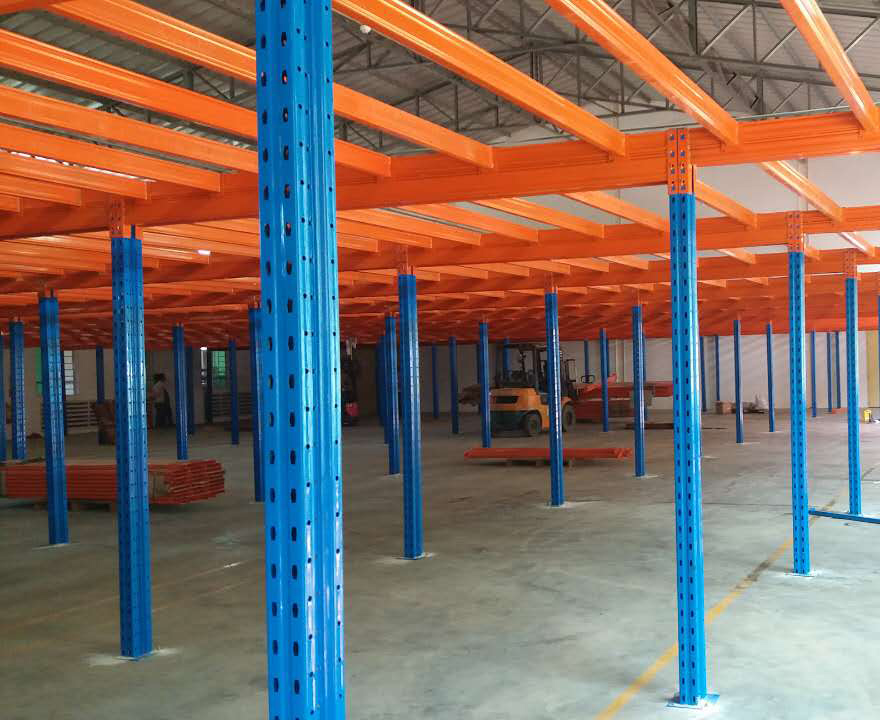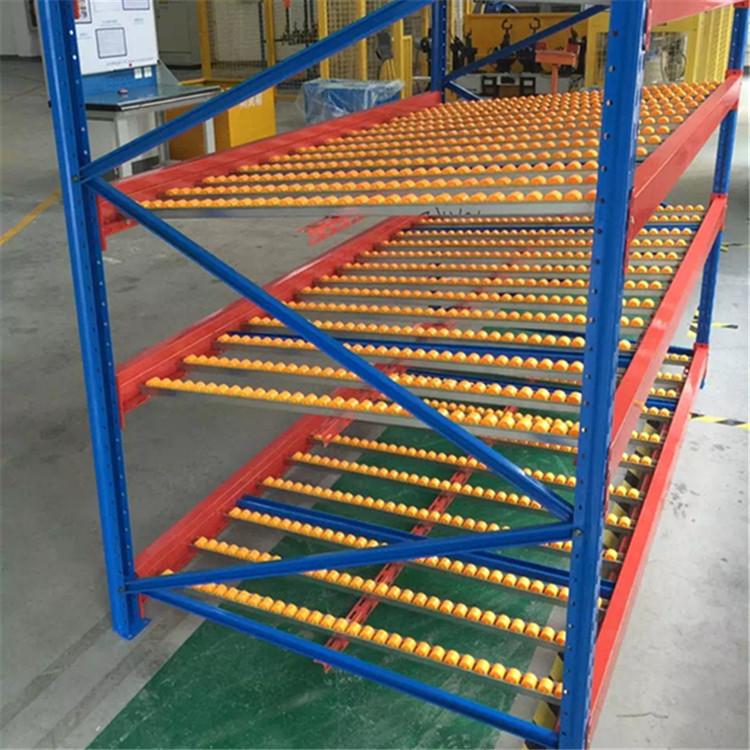In the relentless pursuit of maximizing warehouse space and operational efficiency, the mobile racking system has emerged as a game-changing solution. Unlike traditional static shelving, these systems consolidate aisles by moving entire rows of racks on rails, dramatically increasing storage density. However, the success of such a significant investment hinges almost entirely on one decision: selecting the right mobile racking system manufacturer. This isn't just a purchase; it's a long-term partnership that impacts your daily operations, safety, and bottom line for years to come.
This article cuts through the noise and provides a clear, actionable framework for evaluating potential partners, ensuring you make an informed choice that aligns with your specific business needs.

Before diving into the selection criteria, it's crucial to grasp why a mobile racking system is often the superior choice for space-constrained facilities. By eliminating multiple fixed aisles and having just one aisle that opens where needed, these systems can increase storage capacity by up to 100% compared to traditional static pallet racking. This high-density approach is ideal for storing a large number of SKUs in a smaller footprint, making it perfect for cold storage, archives, and manufacturing facilities where real estate is at a premium.
Not all warehouses are created equal, and neither should your storage solution be. A top-tier mobile racking system manufacturer doesn't just sell pre-configured products; they provide engineered solutions. Look for a manufacturer with a proven track record of designing custom systems.
Structural Analysis: Can they perform a floor load analysis to ensure your slab can support the concentrated loads?
Custom Configurations: Do they offer flexibility in beam levels, upright frame sizes, and decking options to accommodate your unique load types and sizes?
Integration: Can the system be seamlessly integrated with your existing material handling equipment, such as forklifts or pallet jacks?
The ability to customize is a direct reflection of the manufacturer's deep engineering knowledge.
A mobile racking system involves moving massive loads, making safety the non-negotiable cornerstone of any design. The manufacturer's commitment to safety should be evident in every component.
Integrated Safety Features: Look for systems with built-in safety sweeps, aisle-end safety switches, and photoelectric sensors that halt movement if an obstacle is detected.
Anti-Tilt Design: The system must have robust guides and locks to prevent the entire row from tipping during movement or seismic events.
Compliance with Standards: Ensure the manufacturer designs and builds its systems in compliance with relevant international and local standards (e.g., FEM, RMI, AS4084).
A reputable mobile racking system manufacturer will prioritize safety protocols to protect both your inventory and, more importantly, your personnel.
The durability and longevity of your mobile racking system are directly tied to the quality of raw materials and the precision of the manufacturing process.
Steel Quality: Inquire about the grade and source of the steel used. High-tensile steel is often preferred for its strength-to-weight ratio.
Fabrication Techniques: Modern manufacturers utilize robotic welding and automated punching for superior consistency and strength in every connection.
Finish and Coating: A high-quality powder coat or epoxy finish is essential for corrosion resistance, especially in environments like cold storage or certain industrial settings. The reputation of the mobile racking system manufacturer is often built on this unyielding commitment to quality.

The method used to move the racks is a critical component that affects cost, operational ease, and maintenance.
Manual Systems: Operated by a hand crank, these are cost-effective for smaller, lighter systems but can be labor-intensive.
Mechanical Assist Systems: These use a gearbox and handle to reduce the effort required to move heavily loaded carriages.
Electric Powered Systems: The gold standard for larger, heavier systems. They are operated by a simple push-button control, making them effortless for operators and highly efficient. The choice of drive system is a key area where your chosen mobile racking system manufacturer should provide expert guidance based on your specific load weights and usage frequency.
The installation of a mobile racking system is a complex project. The manufacturer's role shouldn't end at the point of sale.
Dedicated Project Management: Does the manufacturer assign a dedicated project manager to oversee the entire process from design to installation?
Technical Documentation: They should provide comprehensive layout drawings, load tables, and installation manuals.
Ongoing Support: What is their policy for technical support and spare parts availability after the installation is complete? A reliable partner will be there to support you throughout the entire lifecycle of the system.
While the initial investment is a major consideration, the true cost of a mobile racking system must be evaluated over its entire lifespan.
Total Cost of Ownership (TCO): Consider not just the purchase price, but also costs for installation, long-term maintenance, and potential energy savings (in the case of cooled spaces).
Value Engineering: A good manufacturer will help you optimize the design to achieve the best balance between performance and cost, without compromising on safety or durability.
Warranty: A strong, comprehensive warranty is a strong indicator of the manufacturer's confidence in their product's quality.
Finally, look for tangible proof of success. A credible mobile racking system manufacturer will have a robust portfolio of completed projects across various industries.
Case Studies: Review detailed case studies that demonstrate how they solved challenges similar to yours.
Client References: Don’t hesitate to ask for references. Speaking directly with past clients can provide invaluable insights into their experience with the manufacturer's products, installation team, and after-sales service.
Choosing a mobile racking system manufacturer is a strategic decision that requires careful deliberation. By systematically evaluating potential partners based on these seven factors—engineering expertise, safety, quality, drive mechanisms, project management, cost analysis, and proven track record—you can move forward with confidence. You're not just installing a storage system; you are building a foundation for a more efficient, safe, and profitable operation for the long haul.
Q1: What is the typical lead time for a custom mobile racking system?
A1: The lead time can vary significantly based on the project's complexity and the manufacturer's current order book. A standard system might take 8-12 weeks from final sign-off on drawings to delivery, while highly complex, large-scale projects can take several months. A reputable mobile racking system manufacturer will provide a detailed project timeline upfront.
Q2: Can a mobile racking system be installed on an existing warehouse floor?
A2: Yes, but it requires a thorough professional floor assessment. The existing concrete slab must be able to support the significantly higher point loads of the system's rails. The mobile racking system manufacturer should insist on a floor load analysis before finalizing any design to ensure structural integrity and safety.
Q3: What kind of maintenance do these systems require?
A3: Maintenance is generally minimal but crucial. It primarily involves regular inspection and lubrication of the drive mechanisms, checking the rail tracks for obstructions, and ensuring all safety sensors and switches are functioning correctly. Your manufacturer should provide a recommended maintenance schedule.
Q4: How does the cost of a mobile racking system compare to traditional shelving?
A4: The initial purchase and installation cost of a mobile racking system is higher than that of traditional static shelving. However, when you factor in the cost per pallet position based on the vastly increased storage density, a mobile system often proves to be more cost-effective in the long run, especially in areas with high real estate costs.
Q5: Are mobile racking systems suitable for all types of inventory?
A5: They are ideal for high-density storage of a large number of SKUs but are less suitable for very high-throughput operations where multiple items need to be accessed simultaneously from different aisles. They work best for slower-moving inventory, archival records, or in environments where space is the primary constraint. A consultation with a qualified mobile racking system manufacturer can determine if it's the right fit for your inventory profile.
 Wechat
Wechat
 Whatsapp
Whatsapp